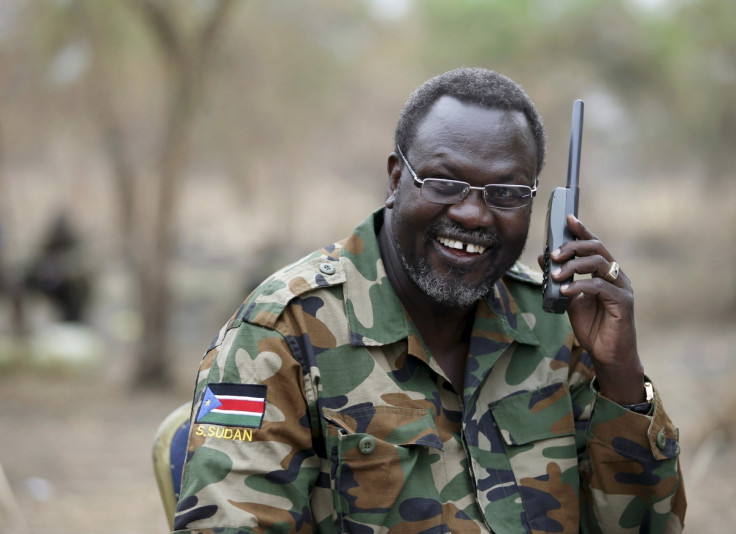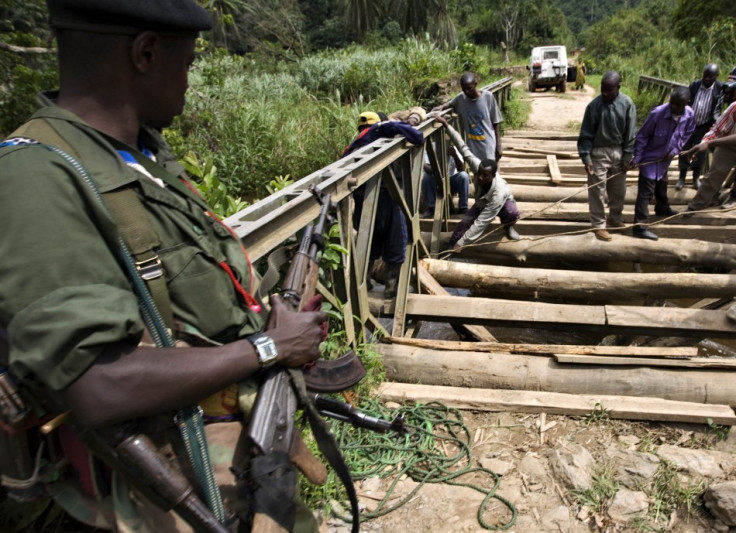Why DRC wants troops loyal to South Sudan rebel leader Riek Machar out
People in North Kivu region fear rebels could behave like FDLR militants and start attacking civilians.

The United Nation mission in the Democratic Republic of Congo (Monusco) is working to identify a solution to the country's request to move fighters loyal to South Sudan's ousted vice-president Riek Machar. DRC claimed the 750 rebels pose a threat to communities in the Kivu province and asked the UN to fly the rebels out by 10 October.
A spokesperson for the Monusco told the BBC the organisation had taken note of the deadline given and was working to solve the issue.
Why are the fighters in DRC?
In July, Machar went missing following fighting that left at least 300 people dead in South Sudan's capital Juba. The resurgence of violence cast doubts on whether a peace deal signed in 2015 could effectively restore peace in the war-torn country.
As Machar's whereabouts became unknown, he was dismissed as vice-president and replaced by Taban Deng Gai.
It is believed Machar and some of the soldiers loyal to him crossed into neighbouring DRC. In August, the UN confirmed Machar was in DRC and added the rebel leader had been handed to the Congolese authorities.
A few weeks later, reports claimed Machar was in Sudan's capital Khartoum to receive medical care.
Why are the fighters unwelcome?
DRC's request to Monusco came days after hundreds of people in the North Kivu province demonstrated against the presence of the rebels and called for their relocation to another country.
Referring to the Democratic Forces for the Liberation of Rwanda (FDLR), North Kivu province legislators' spokesman John Paul Lumbu was quoted as saying: "In April 1994 [during the Rwandan genocide], the population of North Kivu welcomed Rwandan refugees. Unfortunately, these refugees have become killers of the Congolese. That is the reason why we do not want South Sudan rebels in our territory."
However, Phil Clark, reader in international politics at Soas University, London, believes the troops pose little security threat in North Kivu. "They have already been disarmed and remain under careful watch by the UN. They also have little knowledge of the terrain in North Kivu and no major political or economic interests in the area, so it is very unlikely that they would stir up trouble," he told IBTimes UK.
There are also fears that the presence of the rebel fighters in the Kivu area could create tensions between DRC and South Sudan and expose communities to violence.

Who are the FDLR militants?
During the 1994 Rwandan genocide, more than 800,000 people – mainly Tutsis and moderate Hutus – were killed by Hutu extremists. The Interahamwe – a Hutu paramilitary organisation whose name translates from Kinyarwanda as "those who stand together" – was accused of being behind the genocide. Following the end of the massacres, the Interahamwe and other Hutu extremists fled to DRC where they formed the FDLR in 2000.
The group was used by the Congolese government to fight the Rwandan Patriotic Army and other foreign troops in the country during the Second Congo War, which erupted in 1998. Following the end of what has been dubbed the deadliest conflict in Africa in 2003, the FDLR continued to carry out attacks against Tutsis in Congo and along the border with Rwanda.
The group is allegedly responsible for several terror attacks that killed dozens of people in eastern Congo.
"The FDLR has been one of the most violent and destructive rebel groups in eastern Congo over the last 15 years," Clark said. "It is responsible for mass murder, rape, torture and pillage against the local civilian population, often with the direct backing of the Congolese army."
Clark explained all the attempts to neutralise the group have so far failed, including the efforts of the UN Force Intervention Brigade – tasked to neutralise armed groups that destabilise eastern Congo.
"The FIB has so far failed in this mission because the Congolese government has blocked efforts to tackle the FDLR, which has been one of its key allies over the last 15 years," Clark claimed.
© Copyright IBTimes 2025. All rights reserved.





















